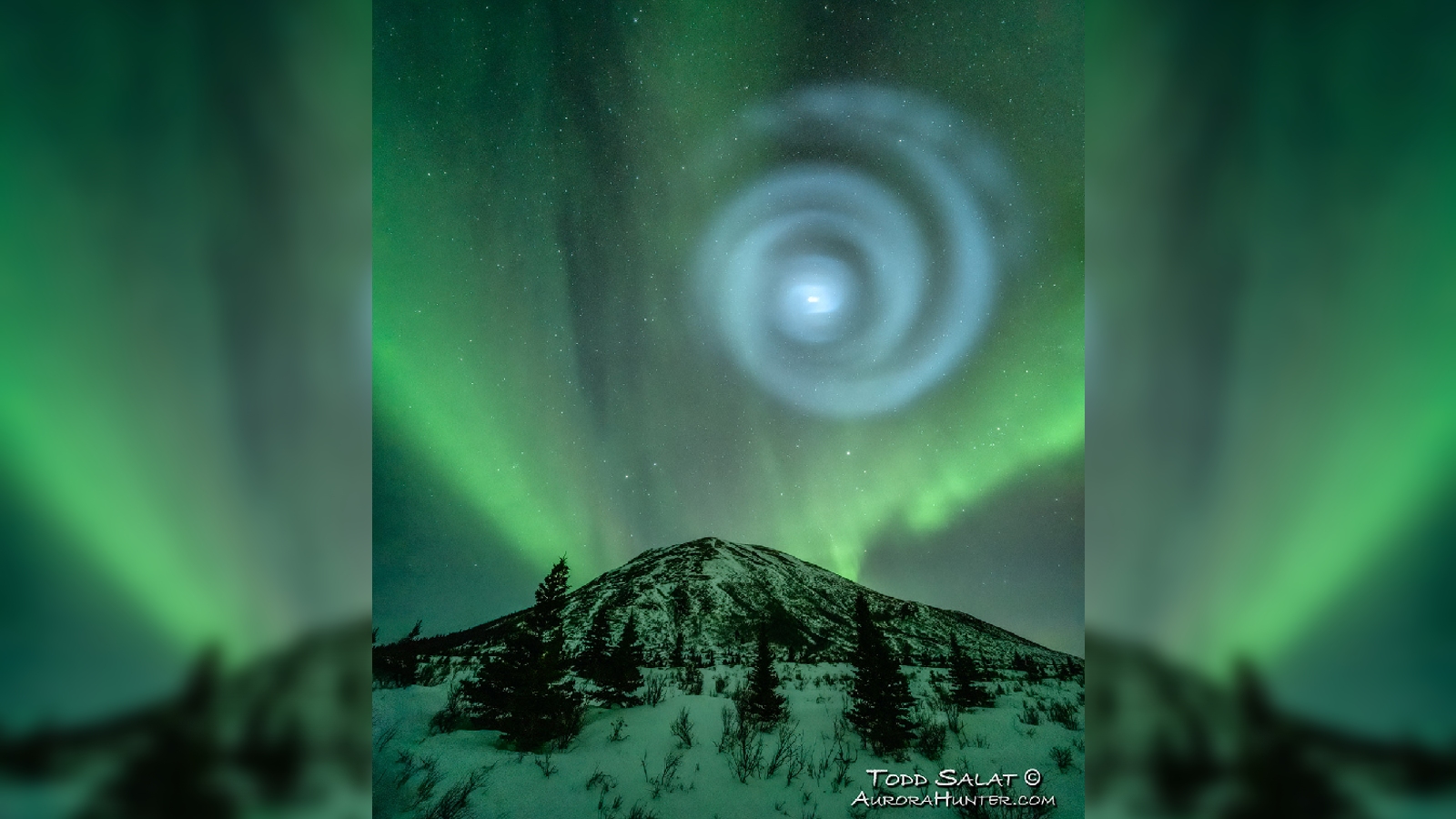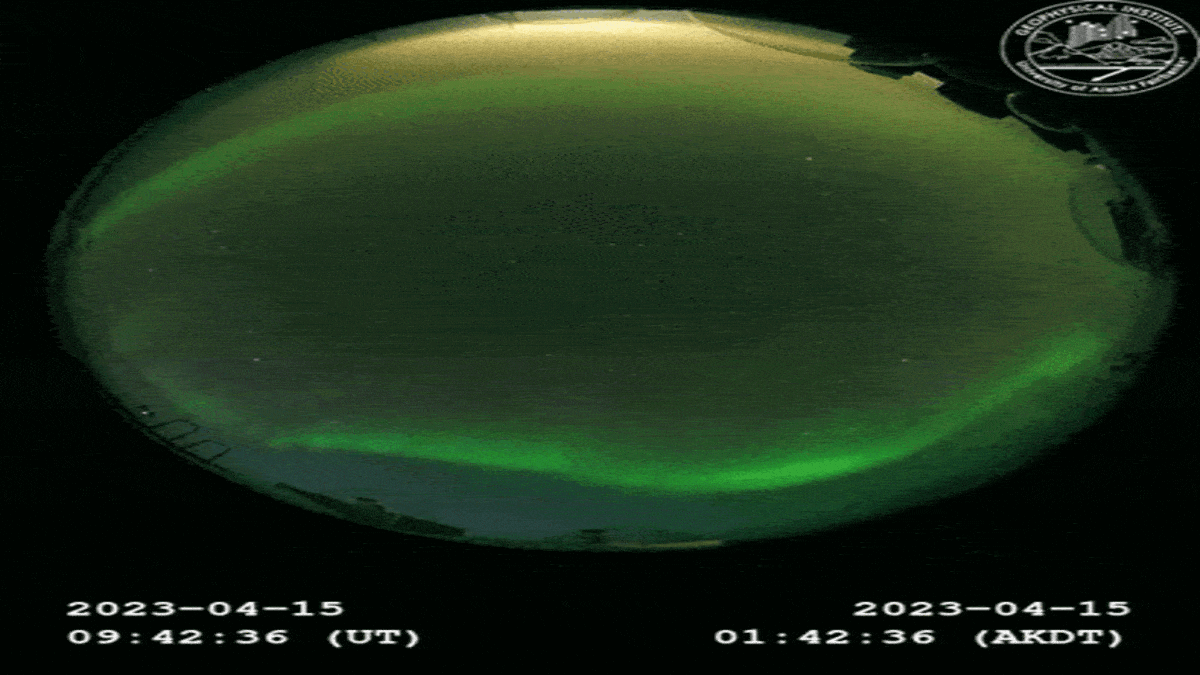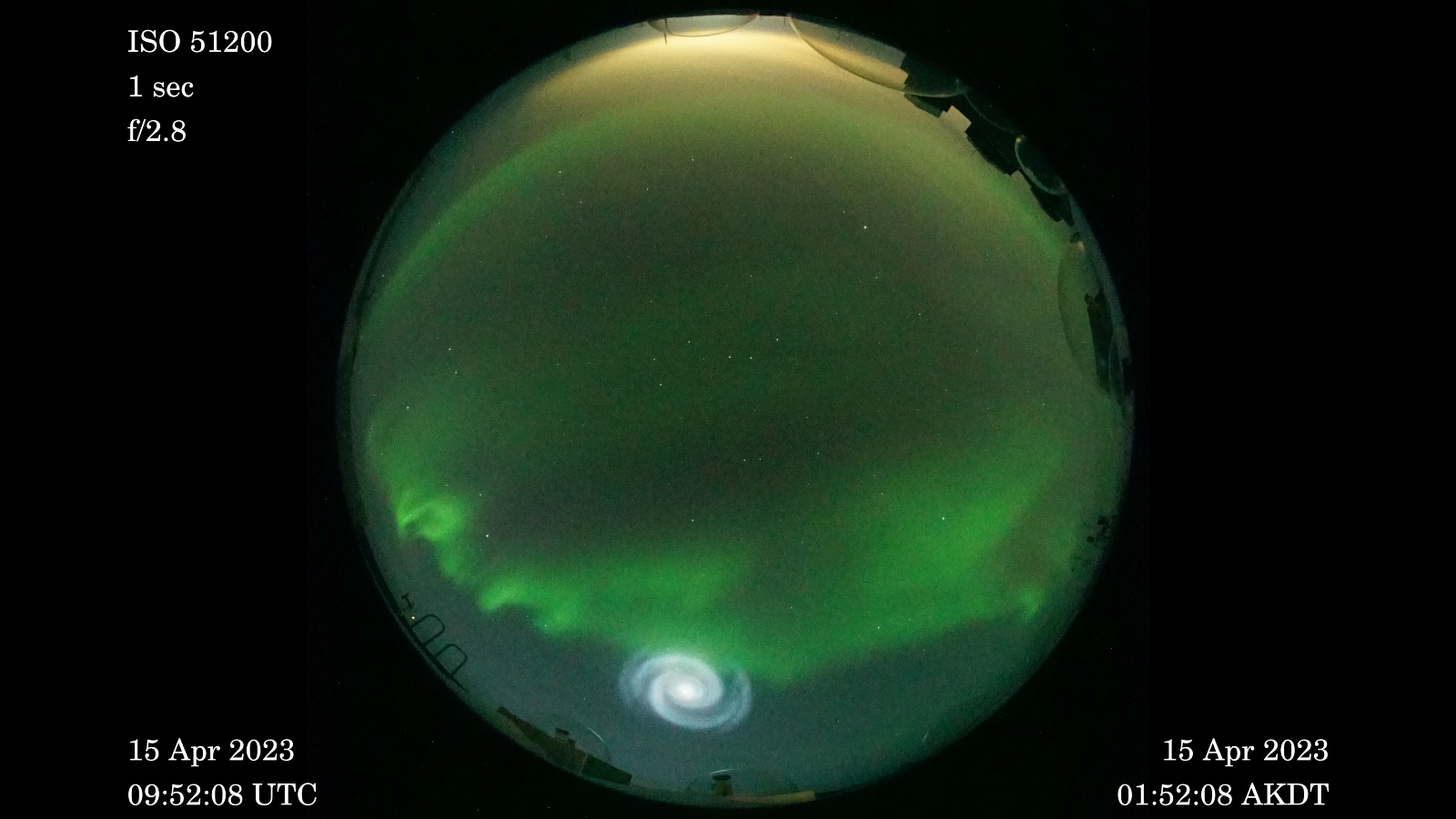Ethereal whirlpool of light grows into a giant, perfect spiral above Alaska. What was it?
A mystifying swirl of light recently appeared in the night sky above Alaska, briefly outshining a vibrant auroral display.
An ethereal whirlpool of light recently appeared in the night sky above Alaska, briefly stealing the limelight from a strong auroral display. But the bizarre, spiral-shaped object had nothing to do with the dancing polar lights.
Instead, the luminous vortex was just the latest example of what astronomers have nicknamed "SpaceX spirals," which are becoming an increasingly common sight for stargazers across the globe. These spirals form when rocket fuel, which is ejected from the fast-spinning upper stages of Falcon 9 rockets, gets frozen in space. These frozen swirls then reflect sunlight back towards Earth, which makes them visible to stunned onlookers on the ground.
The spiral was spotted in the sky above Alaska on April 15 at around midnight local time, while vibrant green Northern Lights were already dancing across the night sky, Spaceweather.com reported. The strange whirlpool was was filmed by cameras at the University of Alaska's Poker Flat Research Range near Fairbanks.
The video shows the spiral forming from an initial bright spot into a massive galaxy-shaped object, before gradually fading into nothingness. It was visible for around seven minutes.
"I was utterly surprised and mystified when I first spotted a distant bright light coming toward me from the northern horizon," Todd Salat, an astrophotographer who captured an image of the spiral above Donnelly Dome near Delta Junction, told Spaceweather.com. "At first I thought it was a jet airliner flying through some clouds. Then it took on the spiral shape and grew big fast!"
Related: Eerie ring of red light flashes like a massive UFO above Italy. What was it?
The spiral was made up of fuel ejected by a Falcon 9 rocket that launched from California's Vandenberg Space Force Base around three hours before the whirlpool appeared. The rocket successfully deployed 51 satellites into Earth-orbit, bolstering both SpaceX's own Starlink constellation and satellite networks belonging to other private companies, SpaceNews reported.
Breaking space news, the latest updates on rocket launches, skywatching events and more!
Not every SpaceX rocket launch leads to a SpaceX spiral. Many occur above the vast, empty expanse of the Pacific Ocean, or during the day when they are not visible at all. However, the spirals have become more common in recent years as the number of SpaceX launches has increased.
On Jan. 18, an eerily-perfect spiral was filmed above Hawaii by the Subaru-Asahi Star Camera, mounted on Mauna Kea and operated by the National Astronomical Observatory of Japan. The same camera also spied another striking spiral in April 2022.
In June 2022, a frozen swirl was also snapped above New Zealand, Live Science's sister site Space.com reported.
But SpaceX is not the only cause of these rocket-derived light shows.
In April 2022, frozen fuel from a Chinese rocket created a spinning orb of light that also photobombed an auroral display above Alaska. And in October 2017, an even larger blue orb was seen in the sky above Siberia, according to ScienceAlert. On that occasion, the frozen fuel was left by Russian military rocket tests in the area.
This story was originally posted on Live Science.

Harry is a U.K.-based staff writer at Live Science. He studied Marine Biology at the University of Exeter (Penryn campus) and after graduating started his own blog site "Marine Madness," which he continues to run with other ocean enthusiasts. He is also interested in evolution, climate change, robots, space exploration, environmental conservation and anything that's been fossilized. When not at work he can be found watching sci-fi films, playing old Pokemon games or running (probably slower than he'd like).




